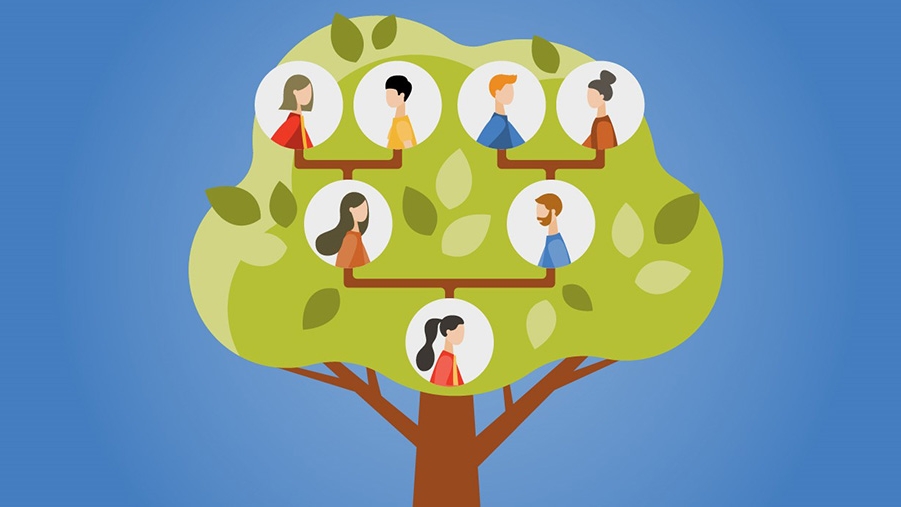- Diseases
- Acoustic Neuroma (14)
- Adrenal Gland Tumor (24)
- Anal Cancer (66)
- Anemia (2)
- Appendix Cancer (16)
- Bile Duct Cancer (28)
- Bladder Cancer (68)
- Brain Metastases (28)
- Brain Tumor (228)
- Breast Cancer (714)
- Breast Implant-Associated Anaplastic Large Cell Lymphoma (2)
- Cancer of Unknown Primary (4)
- Carcinoid Tumor (8)
- Cervical Cancer (154)
- Colon Cancer (164)
- Colorectal Cancer (110)
- Endocrine Tumor (4)
- Esophageal Cancer (42)
- Eye Cancer (36)
- Fallopian Tube Cancer (6)
- Germ Cell Tumor (4)
- Gestational Trophoblastic Disease (2)
- Head and Neck Cancer (6)
- Kidney Cancer (124)
- Leukemia (344)
- Liver Cancer (50)
- Lung Cancer (288)
- Lymphoma (284)
- Mesothelioma (14)
- Metastasis (30)
- Multiple Myeloma (98)
- Myelodysplastic Syndrome (60)
- Myeloproliferative Neoplasm (4)
- Neuroendocrine Tumors (16)
- Oral Cancer (100)
- Ovarian Cancer (170)
- Pancreatic Cancer (166)
- Parathyroid Disease (2)
- Penile Cancer (14)
- Pituitary Tumor (6)
- Prostate Cancer (144)
- Rectal Cancer (58)
- Renal Medullary Carcinoma (6)
- Salivary Gland Cancer (14)
- Sarcoma (236)
- Skin Cancer (294)
- Skull Base Tumors (56)
- Spinal Tumor (12)
- Stomach Cancer (60)
- Testicular Cancer (28)
- Throat Cancer (90)
- Thymoma (6)
- Thyroid Cancer (98)
- Tonsil Cancer (30)
- Uterine Cancer (78)
- Vaginal Cancer (14)
- Vulvar Cancer (18)
- Cancer Topic
- Adolescent and Young Adult Cancer Issues (20)
- Advance Care Planning (10)
- Biostatistics (2)
- Blood Donation (18)
- Bone Health (8)
- COVID-19 (362)
- Cancer Recurrence (120)
- Childhood Cancer Issues (120)
- Clinical Trials (622)
- Complementary Integrative Medicine (24)
- Cytogenetics (2)
- DNA Methylation (4)
- Diagnosis (226)
- Epigenetics (6)
- Fertility (62)
- Follow-up Guidelines (2)
- Health Disparities (14)
- Hereditary Cancer Syndromes (122)
- Immunology (18)
- Li-Fraumeni Syndrome (8)
- Mental Health (118)
- Molecular Diagnostics (8)
- Pain Management (64)
- Palliative Care (8)
- Pathology (10)
- Physical Therapy (18)
- Pregnancy (18)
- Prevention (886)
- Research (388)
- Second Opinion (74)
- Sexuality (16)
- Side Effects (602)
- Sleep Disorders (10)
- Stem Cell Transplantation Cellular Therapy (216)
- Support (404)
- Survivorship (322)
- Symptoms (186)
- Treatment (1770)
What to know after learning you have a BRCA mutation
6 minute read | Published October 10, 2024
Medically Reviewed | Last reviewed by Banu Arun, M.D., and Hiam Abdel-Salam on October 10, 2024
Finding out you are at an increased risk for cancer can feel especially personal – not to mention urgent – when it's due to genetics like it is for those who carry BRCA gene mutations.
That’s why we asked breast medical oncologist Banu Arun, M.D., and genetic counselor Hiam Abdel-Salam for advice on what to know if you’ve tested positive for a BRCA genetic mutation.
Learn the BRCA basics
A BRCA mutation is a difference in the spelling of one of two genes every person has: BRCA1 or BRCA2. BRCA mutations that are inherited are called germline mutations. This means they are something you are born with, Abdel-Salam says.
“BRCA genes, like many other cancer-related genes, sit in our genetic code and protect us from developing certain kinds of cancers,” she says. “If they're not working properly because there's a damaging variance or a mutation in one of your BRCA genes, that's what causes you to be at a higher risk for getting certain kinds of cancers, like breast cancer or ovarian cancer.”
Some people find out they have BRCA mutations after they are diagnosed with cancer. Others find out after they get genetic testing, usually prompted by a family history of cancer.
During genetic testing, Abdel-Salam explains that DNA from a blood or saliva sample is examined for mutations in your BRCA1 and BRCA2 genes. Your doctor or genetic counselor will explain your genetic testing results in more detail so they can help you determine how to proceed.
“It’s important to discuss your results with a genetics expert, such as a genetic counselor, and your doctors. They can offer guidance on what changes, if any, should be made in your care,” she says.
BRCA and cancer risk
There are different types of mutations in the BRCA1 and BRCA2 genes.
Most BRCA1 and BRCA2 mutations don’t lead to an increased cancer risk, Abdel-Salam says.
“Like all other genes that we have, it is normal to have several variations in the way that our BRCA1 and BRCA2 genes are spelled. These differences are benign most of the time. This means they do not impact the function of the gene and do not cause us to have a higher risk of developing cancer,” she explains.
However, when the BRCA mutation does impact the gene function, you are at a higher risk for several types of cancer. Arun says these include:
- Breast cancer, including male breast cancer
- Ovarian cancer
- Pancreatic cancer
- Prostate cancer
- Melanoma
“Individuals with a BRCA germline mutation have an up to 60% lifetime breast cancer risk, up to 40% ovarian cancer risk, as well as increased risk for pancreatic cancer, prostate cancer and melanoma,” she says.
This risk varies based on:
- Your sex
- Whether you have a BRCA1 or BRCA2 mutation
For example, those who are assigned female at birth (AFAB) with a BRCA1 mutation have up to a 44% increased risk of ovarian cancer. Those who are AFAB with a BRCA2 mutation have up to about a 17% increased risk, Abdel-Salam says.
Someone who is assigned male at birth (AMAB) with a BRCA2 mutation is also at a higher risk for breast cancer and prostate cancer than someone AMAB with a BRCA1 mutation, she adds.
Consider your risk-reduction options
If you have a BRCA mutation that increases your cancer risk, your care team will help you understand that risk and options for reducing it.
“It’s important to discuss detailed risk reduction strategies with a provider,” Arun says.
Screenings
More frequent cancer screenings can help detect breast cancer early when it is easiest to treat, Abdel-Salam says.
If you are AFAB and have a BRCA mutation, you should get breast MRIs with contrast every year starting at age 25 and yearly mammograms starting at age 30. Once you turn 30, it’s recommended to alternate between getting a breast MRI and a mammogram every six months, she says.
She adds that screening such as transvaginal ultrasounds and blood tests to check CA-125 levels can also be considered to screen for ovarian cancer. However, this method is less effective at diagnosing early-stage cancers.
Medication
The hormone therapy medication tamoxifen may reduce breast cancer risk for people who carry the BRCA2 mutation, Arun says.
Surgery
Risk-reduction surgeries can be used to lower cancer risk for those with BRCA mutations.
Double mastectomy: Surgery to remove breast tissue.
Bilateral salphingo oophorectomy: Surgery to remove the ovaries and fallopian tubes.
Notify family members
If you have a BRCA mutation that increases cancer risk, Abdel-Salam says it is important to tell your relatives, including first- and second-degree relatives. They can then choose to pursue genetic testing to learn if they are also a BRCA mutation carrier.
First-degree relatives include your:
- Parents
- Siblings
- Children
Second-degree relatives include your:
- Grandparents
- Grandchildren
- Aunts
- Uncles
- Nieces
- Nephews
- Half-siblings
Your genetic counselor can help you determine which relatives to talk to based on your family history and other factors, Abdel-Salam says.
Not sure how to approach the topic? MD Anderson genetic counselors offer resources, including a letter you can mail or email to relatives with information on the BRCA mutation and genetic testing.
“We do recommend that you notify your relatives that there is a BRCA mutation. This is something that could change their care,” Abdel-Salam says.
Understand how BRCA affects your children, family planning
Finding out you carry a BRCA mutation may be especially frightening if you have children or hope to have children in the future.
If you have a BRCA mutation and have children, there is a 50% chance that they could also have a BRCA mutation, Abdel-Salam says.
Hoping to grow your family? Abdel-Salam says that genetic counselors can share resources regarding preimplantation genetic testing.
If you already have children, they can choose to get genetic testing as adults to find out if they have a BRCA mutation.
Genetic testing for BRCA1 and BRCA2 isn’t typically done on people younger than age 18, Abdel-Salam explains.
“Most of the cancer risks that we see with BRCA are in adults. We like to make sure that anybody who is deciding to go through genetic testing is legally and ethically able to make that decision for themselves,” she says.
Insurance considerations
Another complexity of genetic testing is the effect it may have on your insurance.
The Genetic Information Nondiscrimination Act (GINA) protects Americans from discrimination in employment and insurance situations based on their genetic testing results.
However, Abdel-Salam says the situation can get tricky if you find out you have a BRCA mutation but haven’t yet secured life or long-term disability insurance.
Your genetic counselor can help you better understand this law and how it affects you.
Make space for your emotions
While a BRCA mutation impacts physical health, finding out about a BRCA mutation can also affect your mental health and well-being.
For some, learning they have a BRCA mutation means increased fear and anxiety. For others, it may provide long-sought answers and relief. For others still, it's a mix of all those feelings and more, Abdel-Salam says.
“Learning that you have a BRCA mutation can help with therapy decision-making for patients and their doctor, or it can give you an explanation for why there have been so many different kinds of cancers in your family or why so many people in your family develop things like breast cancer so young. Sometimes that can be a really big question, and finally getting that genetic testing result can be an answer for what's going on in your family,” she says.
To navigate these feelings, Abdel-Salam recommends labeling your emotions. It can help to share how you’re feeling with your genetic counselor who can connect you to resources such as support groups and mental health professionals.
“We really try our best to be open with patients so that they have a chance to talk about the more emotional side of learning about this,” she says. “It can be a pretty overwhelming experience.”
Request an appointment at MD Anderson online or call 1-877-917-0980.

Detailed risk reduction strategies need to be discussed with a provider.
Banu Arun, M.D.
Physician





